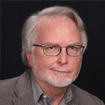
Multiplatform Data Architectures
Webinar Speaker: Philip Russom, Senior Research Director for Data Management
Date: Wednesday, October 10, 2018
Time: 9:00 a.m. PT, 12:00 p.m. ET
Webinar Abstract
A multiplatform data architecture (MDA) contains data distributed across multiple databases, open source or big data platforms, file systems, clouds, and other data platforms. An MDA is characterized by its large number and diversity of data persistence platforms, as well as its broad range of data structures, types, and containers. Equally important, however, is the MDA’s substantial data management infrastructure, which unifies the MDA’s architecture by integrating, synchronizing, cleansing, mastering, and documenting data across the MDA’s many platforms and beyond.
The point of the MDA is to give users many options for capturing, storing, integrating, and processing today’s rapidly diversifying data. After all, in modern digital enterprises, data is evolving into greater diversity (more data types, sources, schema, and latencies) and higher volumes and speeds (big data, real-time streams), while user organizations are diversifying the ways they use data for business value (via advanced analytics, customer views, operationalizing IoT, and data shared across business units).
The content of this webinar is based on the research findings of a new Best Practices Report by TDWI’s Philip Russom called “Multiplatform Data Architectures: Addressing Complex Modern Requirements for Hybrid Data and its Business Use.” That report was sponsored by Datometry and SAP.
What You Will Learn:
- Business and technology reasons for adopting MDAs and similar environments
- Statistics about users’ best practices, designs, architectures, adoption rates, preferred technologies, staffing, skills, sponsorship, governance, etc.
- Technologies, tools, and platform types in use with MDAs
- The roles of Hadoop, cloud, and relational technologies, plus the hybrid data architectures that result from their combination
- Top ten priorities for MDAs
Philip Russom, Ph.D.